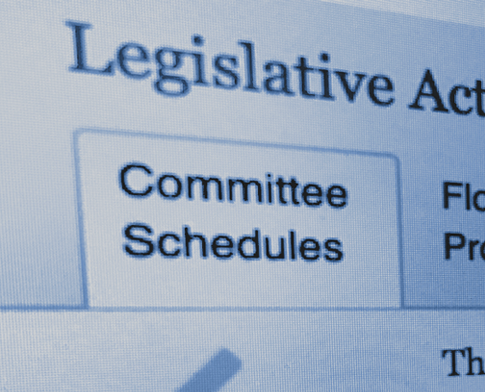| Appropriations Update
The House Committee on Appropriations filed a two-bill “minibus” on September 13, which was approved by a Joint House and Senate Conference Committee. “In addition, the legislation funds critical programs that will protect and save lives both now and in the future,” said Chairman Rodney Frelinghuysen (R-NJ-11). “This includes investments in vital National Institutes of Health research to cure diseases such as cancer and Alzheimer’s, job training, college preparation, special education programs, programs to combat opioid abuse, school safety, and protections against pandemics and bio-threats,” Frelinghuysen said. The bill includes the following: 1) $39 billion of funding for cancer and Alzheimer’s research, $7.9 billion of funding for the Centers for Disease Control (CDC), 2) $6.7 billion of funding to combat the opioid epidemic by providing programs aimed to fight substance abuse and enhance support for access to mental health services, and 3) aims to save taxpayers $50 million in future appropriations by creating the Infectious Diseases Rapid Response Reserve Fund. For a complete list of the bill’s highlights, click here.
Healthcare Data Innovation Conference
On Thursday, September 13, The Center for Data Innovation hosted “Data Innovation Day 2018: The Future of Data-Driven Medicine” at the District Architecture Center. The three sessions featured relevant stakeholders in the healthcare industry, with representatives from pharmaceutical companies such as Pfizer and Novartis, officials from the Food and Drug Administration (FDA), and data analysts. The main idea centered around the integration of artificial intelligence (AI) in the healthcare industry and its role as a vital tool for improving healthcare. With the implementation of electronic health records and the rapid increase of smarter technology, panelists discussed the importance of AI exploration in each of their respective industries. Panel 1 discussed the importance of sharing data and how this transparency can produce better simulations and modules during the drug discovery phase. Panel 2 talked about using AI to improve clinical trials for patients and stated that AI implementation would help improve patient interaction when gathering information during the trial process. The final panel focused on the complex regulatory processes for modernizing medicine and data. Some of the topics addressed included making labels of prescription drugs and medical devices more efficient to prevent consumer injury and maintaining procedures while simplifying regulations. All three panel sessions frequently voiced the importance of accessing this complex data while recognizing the need to maintain data privacy awareness for consumers and industries alike.
Hearings
This week, the House Energy and Commerce Committee held a hearing entitled, “Examining Barriers to Expanding Innovative, Value-Based Care in Medicare.” Chairman Michael Burgess (R-TX) said Congress wants to know more about barriers that make accountable care organizations (ACOs) and advanced payment models (APMs) under Medicare’s Quality Payment Program less attractive to physicians. Witnesses included Dr. Michael Weinstein, President of Digestive Health Physicians Association; Dr. Nishant Anand, Chief Medical Officer of Adventist Health System; Mary Grealy, President of Health Leadership Council; Dr. Timothy Peck, CEO of Call9; Morgan Reed, President of The App Association; and Dr. Michael Robertston, Chief Medical Officer of Covenant Health Partners. The witnesses told the committee they are ‘handcuffed’ by the Stark self-referral law and other regulatory requirements and that those regulations made more sense in a fee-for-service context than they do now. Dr. Weinstein said many independent physicians, particularly specialist, feel shut out of APMs. They can also pose a challenge to medical innovations with new technology. Chairman Burgess did not offer any details about potential legislation, though he did say he would like to hold several more hearings on related topics if time permits. This followed up a hearing from the House Committee on Ways and Means in July 2018 which examined the need for and possible solutions for modernizing physician self-referral law, or “Stark Law,” to increase the ability of the Medicare program to successfully move to a system that rewards higher value, coordinated healthcare over time.
The House Small Business Committee met to discuss the impact the opioid crisis has on small business. Three panelists all shared similar perspectives on a growing level of confidence in the future of small business, and how that conflicts with the ongoing opioid crisis. While unemployment is low, there are also many jobs that remain unfilled due to the challenges of finding and retaining workers who can pass a drug test. Resources from state business development centers were touted as one way that local businesses can get help for workers struggling with addiction. In addition to resources for small businesses, one business owner talked about how relationships and connectivity to the local community can build a path to recovery for workers. Compassion and second chances were highlighted as antidotes to the problem of retaining workers who have struggled with substance abuse. Members were generally curious about what the federal government was doing and could improve on, and the Small Business Administration was highlighted as the support system for state small business development centers across the country. More resources for education and mental health were requested by panelists.
Upcoming Hearings
The Senate Committee on Health, Education Labor & Pensions will hold a hearing on Tuesday, September 18, entitled “Reducing Health Care Costs: Examining How Transparency Can Lower Spending and Empower Patients.” The hearing will be held at 10 a.m. at 430 Dirksen Senate Office Building. For a full list of witnesses and more information on this hearing, click here. |


